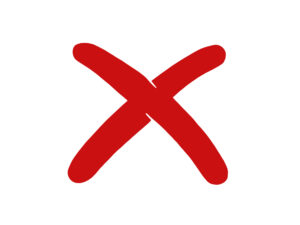How ethical and sustainable is Strongbow?
Strongbow is included in The Good Shopping Guide’s Beer, Lager & Cider Ethical Ratings Table.
We hope that Strongbow will start implementing better CSR and ESG policies in the future, even though it hasn’t yet met our Ethical Benchmark. By submitting an application for Ethical Accreditation, which includes a more thorough evaluation and suggestions for ethical development, Strongbow may boost consumer and investor confidence.
More information on the issues that may be found in The Good Shopping Guide to Ethical Lager, Cider and Beer brands.
Then, in our Beer, Lager and Cider Ethical Ratings Table compare it to other brands.
What does Strongbow do?
Strongbow was launched in 1960 from the UK by H.P. Bulmer. The brand offers a range of products including Apple cider, Dark fruits and Rosé. 90% of all Strongbow cider apples are grown within 40 miles of the brand’s cider mill in Herefordshire. You can read more here.
Strongbow has been a part of the Heineken group since 2008 and is the brands leading cider brand globally.
For which criteria does Strongbow perform poorly?
Strongbow received negative marks for its lack of Organic and Vegan beer, as well as its Genetic Modification Policy and Public Record Complaints. The brewery doesn’t provide a line of vegan or organic beers and has been linked to genetic modification and poor ethical practices.
Past Criticisms of Strongbow’s ethical record
Strongbow’s ethics criticisms come from its parent company, Heineken. Heineken received a low score in the Corporate Information Transparency Index, which you can read more about here.
Heineken was also criticised for its contractor, Sider, being accused of having slave-like conditions for workers as well as being at fault by labour inspectors. Read more on this here.
In what areas does Strongbow score well for its ethics?
Strongbow received a high rating in our categories for Nuclear Energy, Environmental Reporting, Animal Welfare, Political Donations and Armaments. Additionally, Heineken gets high grades for its sustainability strategy, which includes a number of long-term environmental goals.
How can Strongbow improve its Ethical Rating?
Strongbow could apply for Ethical Accreditation for more detailed suggestions on how to improve. The Ethical Rating of a brand is divided into three categories by The Good Shopping Guide: the Environment, People and Animals. Find out more about how we rate.
Offering a line of organic or vegan beers could help Strongbow raise its ranking on our Beer, Lager & Cider Ethical Ratings Table, and meet our Ethical Benchmark. The business should also consider ways to improve the public’s perception of its parent firm Heineken and publish a Genetic Modification Policy.
Why not check out The Good Shopping Guide’s Ethical Accreditation if you work for or with a beer, lager or cider brand that places ethics high on its priority list?
Contact us to learn more, or complete our short form for an initial ethics and sustainability evaluation.
Ethical performance in category
GSG score
GSG category benchmark
Ethical Rating
Environment
-
Environmental Report
Good
-
Genetic Modification
Poor
-
Organic
Poor
-
Nuclear Power
Good
-
Fossil Fuels
Good
Animal
-
Animal Welfare
Good
-
Vegetarian/Vegan Verified
Poor
People
-
Armaments
Good
-
Political Donations
Good
Other
-
Ethical Accreditation
Poor
-
Public Record Criticisms
Poor
-
Public Record Criticisms+
Poor
= GSG Top Rating = GSG Middle Rating = GSG Bottom Rating
